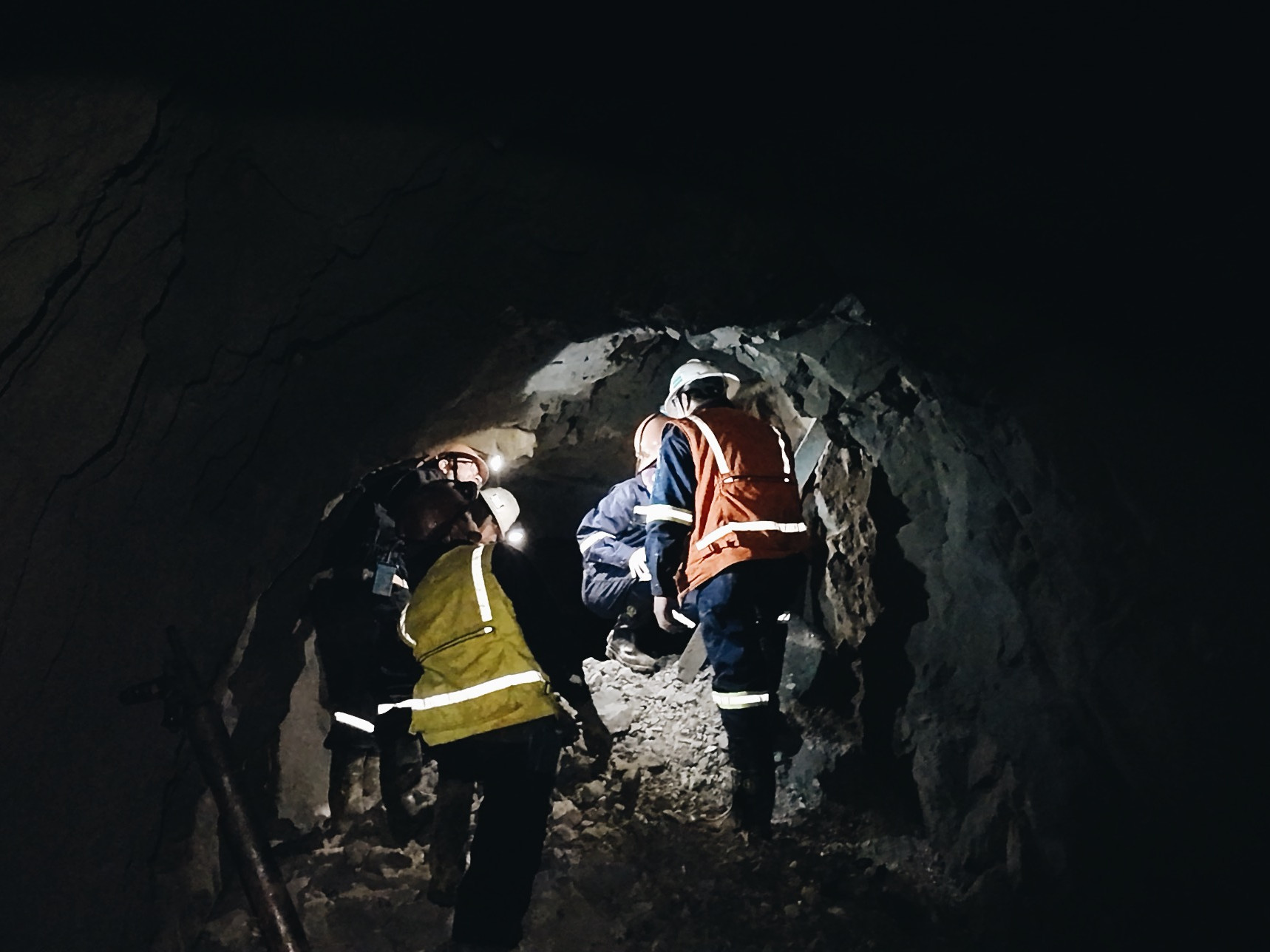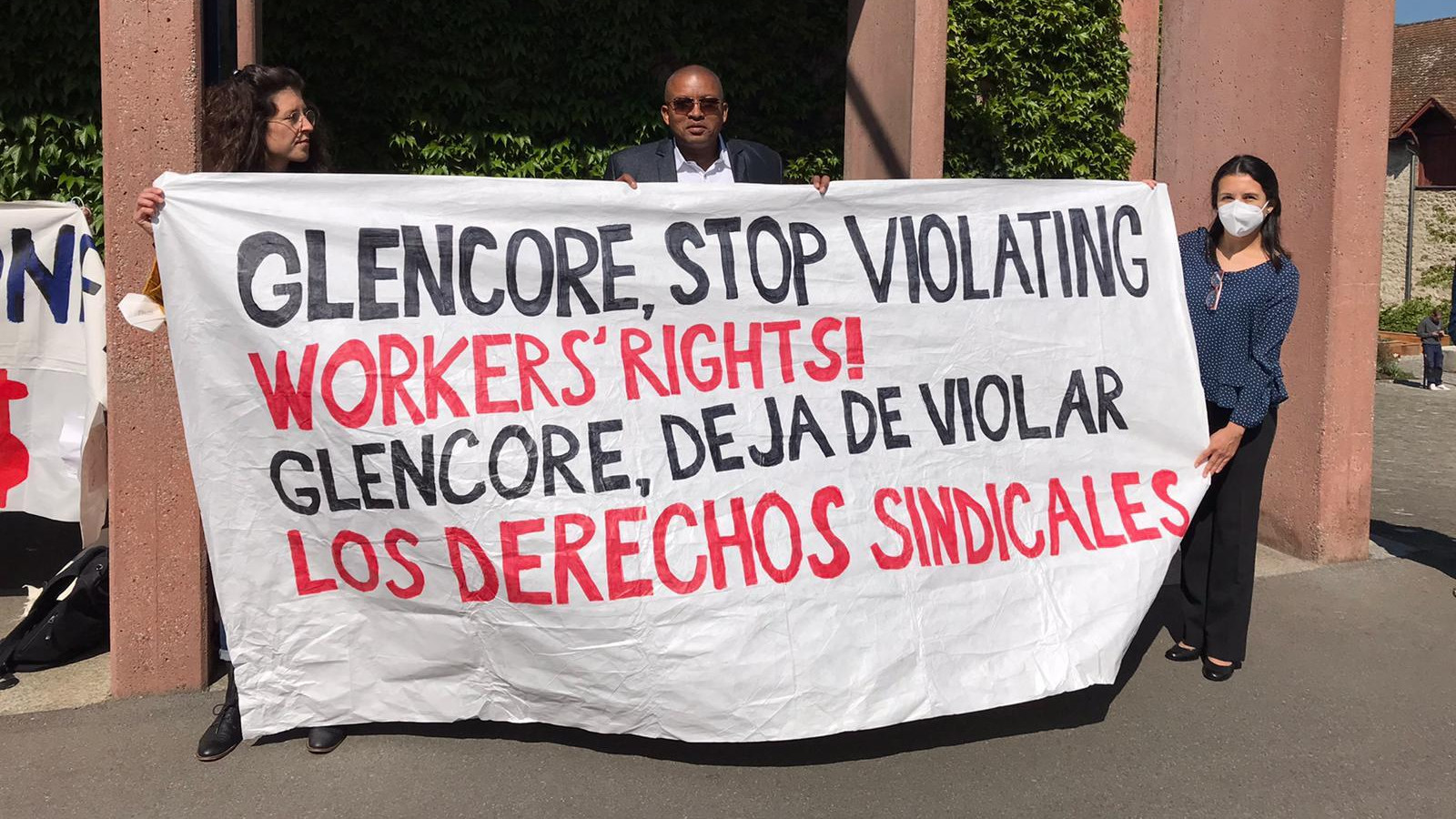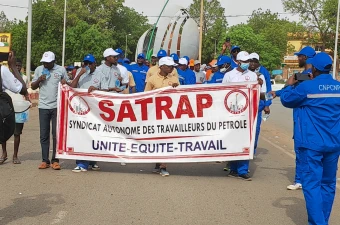A Landmark Court Decision
In a landmark decision, a Peruvian court has rejected Glencore's appeal, mandating that its mining company, Volcan, cease its disruptive actions against freedom of association and collective bargaining by 28 October 2023. The company, which operates the Andaychagua mine in Peru, must comply with the ruling that grants the Andaychagua mine union the right to negotiate collective bargaining agreements. This mine vital for extracting silver and zinc, key minerals for the global energy transition, now stands at the forefront of labour rights.
Urgent Need for Better Ventilation and Protective Equipment
Trade union leader Alex Tinoco welcomes a court decision which highlights the urgent need for better ventilation and protective equipment for miners. "Workers face extreme pressure as they work thousands of meters deep in the mines. Temperatures can be as high as 40 degrees Celsius and ventilation is often poor. And all the while, we are using more and more toxic chemicals, " Tinoco reports. "We hope this court decision will finally bring Volcan to the negotiation table to discuss a new collective bargaining agreement."

The Struggle for Union Recognition
The union's journey began in 2021 when permanent employees at the Andaychagua mine bravely opened their union to colleagues employed through temporary agencies. They submitted a request to negotiate a new collective agreement, aiming for improved working conditions for both permanent and temporary workers.
However, Volcan refused to negotiate, and Glencore, its parent company, actively opposed the union’s efforts.
The Peruvian government confirmed the union's right to negotiate in January 2022. However, Volcan-Glencore has refused to enter into dialogue, prompting the union to initiate a 60 day strike at Christmastime 2022. During the strike, two miners were dismissed.
A Broader Fight: The EU Complaint
In March 2022, CNV Internationaal, along with trade union organisations from Peru and Colombia, filed a complaint with the European Union. This complaint, the first ever filed with the EU's Single Entry Point, aimed to highlight the precarious working conditions in the mines that supply crucial minerals for the EU's energy needs. In May 2024, after two years, the EU finally discussed this complaint.
The Issue of Outsourcing

Peru's outsourcing law, in effect since 2008, aims to reduce costs and enhance the competitiveness of Peruvian industry. However, more than 70% of miners in the metallurgical sector are now temporary outsourced workers, having to renew their contracts every few months.
These outsourced workers are excluded from company labour guarantees and work under significantly worse conditions than permanent employees. It is clear that companies continue to refuse to take responsibility for ensuring proper rights for these outsourced workers.
Glencore's Accountability
Despite Glencore's public claims regarding commitment to international labour standards and human rights, miners and their unions report that the company until now has been shifting the actual responsibility for labour conditions onto subcontractors.
This practice undermines the enforcement of proper working conditions and labour rights for outsourced workers.

Human Rights Concerns
Outsourced miners endure harsher working conditions, including extreme heat, poor ventilation, and insufficient protective equipment. They work in consecutive shifts of 14 or 21 days in remote, high in the Andes without decent dormitory accommodations. Their short-term, precarious contracts make union organisation extremely difficult.
"Workers face extreme pressure as they work thousands of meters deep in the mines. Temperatures can be as high as 40 degrees Celsius and ventilation is often poor. And all the while, we are using more and more toxic chemicals"
- Investor Impact
In recent years major investors like the Dutch pension fund ABP have responded to human rights concerns by adjusting their investment policies. On October 15, 2021, ABP announced its decision to divest from Glencore due to these issues.
- Setting a Precedent
This court decision marks a significant victory for labour rights in the Peruvian mining sector. It not only empowers the miners at Andaychagua, but it also sets a precedent for outsourced workers in industries worldwide.
Publication date 28 05 2024


